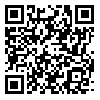Volume 13, Issue 3 (aAutumn 2018)
jmed 2018, 13(3): 238-251 |
Back to browse issues page
Download citation:
BibTeX | RIS | EndNote | Medlars | ProCite | Reference Manager | RefWorks
Send citation to:



BibTeX | RIS | EndNote | Medlars | ProCite | Reference Manager | RefWorks
Send citation to:
Pourhassan S. Clinical mentoring programs for medical students, practical points in design, implementation and evaluation. jmed 2018; 13 (3) :238-251
URL: http://jmed.ssu.ac.ir/article-1-912-en.html
URL: http://jmed.ssu.ac.ir/article-1-912-en.html
Internal medicine department, Shariati hospital, Tehran university of Medical Sciences,Tehran,Iran. , Saeed.Pourhassan@gmail.com
Abstract: (8445 Views)
Introduction: Although Mentoring programs are one of the essential reasons of professional development for medical students, most academics experience lack of them. Following Tehran university of Medical Sciences (TUMS) mentoring program for residents, this study was conducted to review clinical mentoring programs, their goals, effects and practical points about their design, implementation and evaluation.
Methods: A PubMed literature search was conducted for years 2000 - 2015 using the following keywords or their Combinations: mentoring, mentoring program, medical student, mentor, mentee, protégé, mentorship, coaching, and clinical education. Although a total of 664 publications were identified, only 15 papers met the selection criteria for structured programs.
Result: The study evaluated 15 articles which focused on programs with the goals of clinical and professional skills’ training, familiarity with job prospects, improvement of physical and mental health, and students’ interest in specialized disciplines for future, research activities and role modeling. In those programs, mentor selection criteria was age and gender, interest, volunteering, and good academic background. Mentor- mentee matching was done through the profiles containing the educational CV, the priorities of life and work, and out-of-work interests which was done by the system in most of the cases. In some cases, the mentees selected their mentor themselves. Mentors training was done through booklets or by holding workshops with content consist of “mentoring”, “leadership” and “team-work”concepts. Monitoring of the programs was done by faculty members through the mentees and in other cases, through the mentors, by telephone or by the questionnaire. In these programs, in addition to financial encouragement, educational incentives have been used to support mentors. In evaluation of programs, quantitative and qualitative methods (interviews and focus groups) were used. The papers emphasized on the success reason of their clinical mentoring programs in empowering mentors, effective motivational methods for mentors, regular mentor-mentee relationships, monitoring the performance of mentors, and financial and professional support of mentors preserve a mentor for a long period and create; 1) a culture of mentoring, 2) a network of people for sharing experiences and 3) use the support of experienced academics.
Conclusion: Mentoring programs are considered to be the causes of the professional growth of medical students, which is recommended to be implemented at the medical faculties. These programs should be targeted and always evaluated. Also, in designing these programs in addition to the progression of the mentee, there should also be rewards for mentors. By scrutinizing the various programs and reporting them, effective steps can be taken in designing future programs.
Keywords: Mentoring, Medical education, Medical student, Faculty
Type of Study: Review |
Subject:
Medical Education
Received: 2018/05/21 | Accepted: 2018/07/14 | Published: 2018/12/17
Received: 2018/05/21 | Accepted: 2018/07/14 | Published: 2018/12/17
Send email to the article author
| Rights and permissions | |
 |
This work is licensed under a Creative Commons Attribution-NonCommercial 4.0 International License. |







